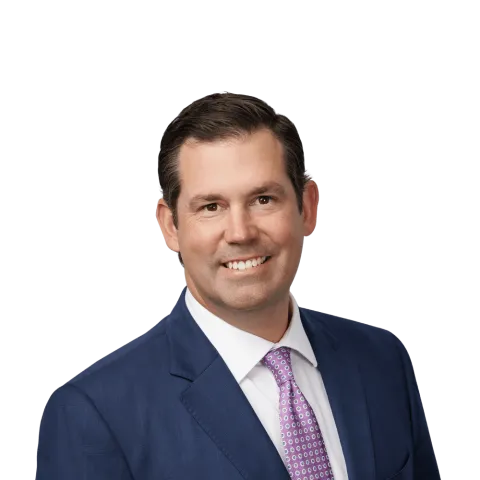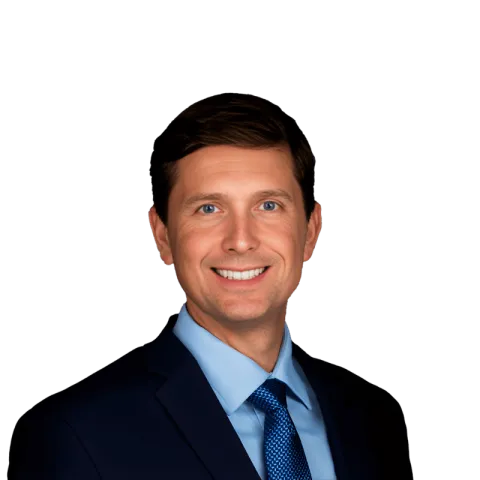Cases will be handled by attorneys licensed in the local jurisdiction. Cases may be associated with, or referred to, other law firms as co-counsel or referral counsel. Results may vary depending on your particular facts and legal circumstances. The attorney featured above is licensed in Florida. For a full list of attorneys in your state please visit our attorney page.
CHARLOTTE NURSING HOME ABUSE LAWYER
Families trust nursing homes to provide care, not harm. But when neglect or abuse occurs, the results are devastating. In Charlotte and across North Carolina, elder abuse in nursing homes is not only unacceptable; it’s illegal. A nursing home abuse lawyer can help uncover the truth, demand accountability, and seek justice.
Cases will be handled by attorneys licensed in the local jurisdiction. Cases may be associated with, or referred to, other law firms as co-counsel or referral counsel. Results may vary depending on your particular facts and legal circumstances. The attorney featured above is licensed in Florida. For a full list of attorneys in your state please visit our attorney page.
Charlotte, NC Nursing Home Abuse
Nursing homes are intended to be places where our elders can get the care and attention they need to live out their golden years in health and happiness. But all too often, the staff at these homes take advantage of our most vulnerable population.
Nursing home abuse can take many forms: physical abuse, negligent care, financial exploitation, and more. No matter the circumstances, if you or a loved one have been abused in a nursing home, an experienced and dedicated nursing home abuse attorney may be able to help you obtain justice. We have the resources and experience to take on big companies and recover the compensation you need to move on with your life.
If you or a loved one have been the victim of nursing home abuse, contact us for a free, no-obligation case evaluation. It costs nothing upfront to hire us, and we get paid only if you win.
150,000+ Five Star Reviews
The reasons why clients trust Morgan & Morgan.
Results may vary depending on your particular facts and legal circumstances. Based on select nationwide reviews.
Our Results
How It Works
Unsure what to do next? With 35 years of experience, our personal
injury lawyers will guide you every step of the way.
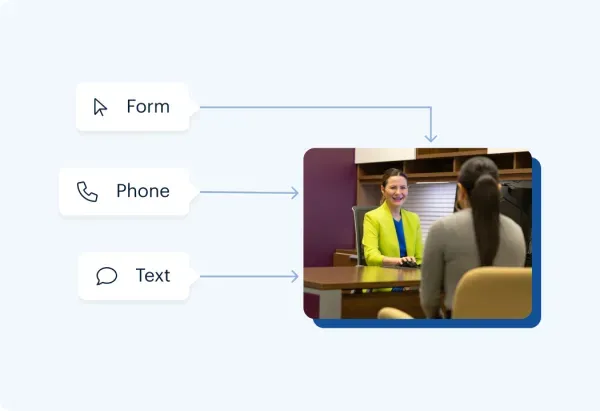
Contact Us 24/7 - It’s Free
Start your claim
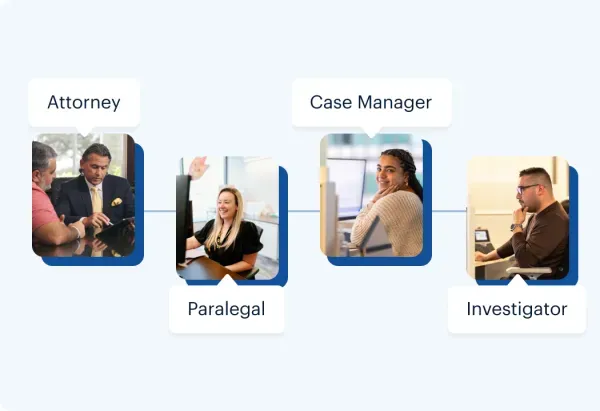
Meet your dedicated attorney
Meet the attorneys
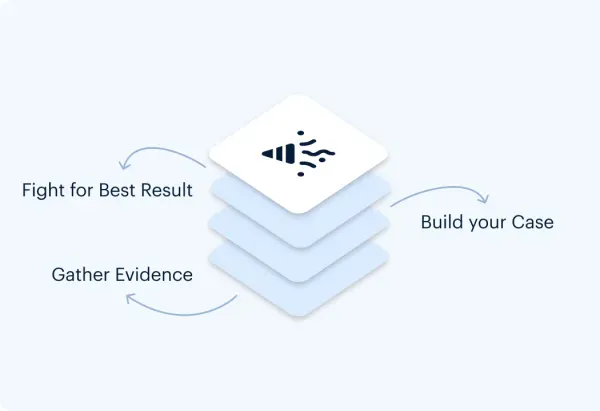
We fight for more
Learn more about the case process
Results may vary depending on your particular facts and legal circumstances. The attorneys shown in these photos may not be licensed in your state. To find an attorney licensed in your area, please visit our attorney page.
Local Care
Backed by America’s Largest Injury Law Firm.
$30 Billion
Recovered for clients
nationwide700,000+
Clients and families
served1,000+
Attorneys across
the country1
Click may change your life
The attorney featured above is licensed in Florida. For a full list of attorneys in your state please visit our attorney page.
Results may vary depending on your particular facts and legal circumstances.
Learn More
Injured and not sure what to do next?
We'll guide you through everything you need to know.
What counts as nursing home abuse in North Carolina?
Nursing home abuse doesn’t always look like bruises or broken bones. While some harm is physical, much of it is psychological, emotional, or financial, and not always easy to detect. In North Carolina, abuse is broadly defined as any willful or negligent act that causes harm or creates a substantial risk of harm to an elderly or disabled adult.
Common forms of nursing home abuse include:
- Negligent care (e.g., poor hygiene, malnutrition, untreated infections)
- Understaffing and negligent hiring (e.g., lack of background checks or training)
- Verbal or emotional abuse (e.g., threats, isolation, humiliation)
- Physical or sexual assault
- Unnecessary physical restraint
- Financial exploitation (e.g., coercing residents to change wills or misuse funds)
Even seemingly small lapses can have dangerous consequences in a nursing facility, especially for residents who rely entirely on staff for daily care.
What kinds of warning signs should families look for?
It’s not always easy to recognize when nursing home abuse is happening, especially if your loved one has dementia, limited mobility, or fears retaliation. But certain red flags often point to something being wrong:
- Bedsores or pressure ulcers
- Frequent falls or unexplained injuries
- Sudden weight loss or signs of dehydration
- Poor hygiene or soiled bedding
- Withdrawal, depression, or fear around specific staff
- Unusual bruising (especially on wrists or ankles)
- Missing personal items, bank withdrawals, or changes in financial accounts
If something feels off, trust your instincts. Abuse and neglect thrive in silence, and early action can prevent further harm.
Who may be held liable?
When nursing home abuse happens, it’s natural to want to blame an individual, but in many cases, the facility itself shares liability. North Carolina law holds nursing homes accountable for:
- Hiring unqualified or dangerous staff
- Failing to supervise employees
- Ignoring resident complaints or safety violations
- Operating with dangerously low staffing levels
- Not adhering to state and federal regulations
An attorney can help determine whether the liability lies with a specific caregiver, the facility as a whole, or both. If a third-party contractor (like a pharmacy or maintenance crew) was involved, they may also share responsibility.
What should I do if I suspect abuse in a Charlotte facility?
If you believe your loved one is being mistreated, take immediate steps:
- Document everything: Take photos of injuries or poor conditions to support your claims. Write down names, dates, and what was said or seen.
- Speak up: Report your concerns to the facility administrator. If they brush you off, escalate it.
- Report the abuse: In Charlotte, you can contact Adult Protective Services or the North Carolina Department of Health and Human Services.
- Move your loved one if needed: Their safety is the top priority.
- Contact an attorney: A legal team can help investigate the situation and file a claim to recover damages.
Why is evidence so important in building my case?
Nursing home abuse cases are rarely built on one piece of evidence; they rely on many. That’s where a lawyer can help. We may:
- Interview witnesses or staff
- Review hiring records, surveillance footage, or care logs
- Analyze medical records and billing statements
- Consult with elder care or medical experts
- Use photos, notes, or hidden camera footage (where legal)
In many cases, hidden cameras and testimony from family or roommates can play a pivotal role in exposing abuse that would otherwise go unreported.
What’s the difference between neglect, abuse, and exploitation?
Understanding the differences between abuse, neglect, and exploitation is critical:
- Neglect is the failure to provide necessary care, such as not assisting a resident with activities of daily living, including eating and bathing.
- Abuse involves active harm: verbal, physical, sexual, or emotional.
- Exploitation occurs when a resident is manipulated for financial or personal gain.
All three can justify legal action if they cause harm or place a resident at risk of harm.
What are North Carolina nursing home laws and residents’ rights?
North Carolina nursing home residents are protected under state and federal law. They have the right to:
- Dignified care
- Freedom from abuse and unnecessary restraint
- Manage their own finances (unless legally delegated)
- File grievances without retaliation
- Access visitors and communication
- Participate in decisions about their treatment
Violating these rights isn't only unethical, but it can also be grounds for a lawsuit.
Should an elder abuse case be settled or taken to trial?
Most nursing home abuse cases resolve through settlements, a confidential agreement where the facility pays compensation without admitting wrongdoing. But when facilities refuse to take accountability, a trial may be the only path forward.
At Morgan & Morgan, we prepare every case as if it’s going to court. Our reputation for winning high jury awards often pressures nursing homes to offer fair settlements early. But if they don’t, we’re ready.
What is a nursing home abuse case worth?
Compensation depends on the severity of harm, medical expenses, emotional distress, and any financial exploitation involved. Damages may include:
- Medical bills and treatment
- Pain and suffering
- Emotional trauma
- Punitive damages (to punish extreme misconduct)
- Restitution for stolen funds or assets
An attorney can estimate the full value of your claim after reviewing the evidence.
What kind of results can families expect in nursing home abuse cases?
While every case is unique, Morgan & Morgan has recovered substantial awards for nursing home abuse victims in Charlotte and beyond. From settlements that compensated families for wrongful death to verdicts involving systemic neglect, our track record sends a clear message: mistreatment will not be tolerated.
How can families choose the right nursing home to prevent abuse?
One way to prevent abuse is by selecting a safe, well-managed nursing home. Look for:
- Adequate staffing ratios
- Clean, well-maintained spaces
- Transparent policies
- No history of regulatory violations
- Good communication with family members
Always visit in person, speak with current residents, and review public inspection reports from the Centers for Medicare & Medicaid Services (CMS).
Why should I choose Morgan & Morgan in Charlotte?
No one deserves to suffer in silence. If your loved one has experienced abuse, neglect, or exploitation in a Charlotte nursing home, don’t wait. The statute of limitations in North Carolina typically gives you three years from the date of injury to take legal action. Still, sooner is always better when it comes to protecting evidence and building a strong case.
At Morgan & Morgan, we’ve been fighting for vulnerable people for over 35 years. Our attorneys are licensed in North Carolina and committed to holding negligent facilities accountable. Hiring us costs nothing, and we only get paid if we win.
Contact us today for a free, no-obligation case review. Justice starts with a conversation.
